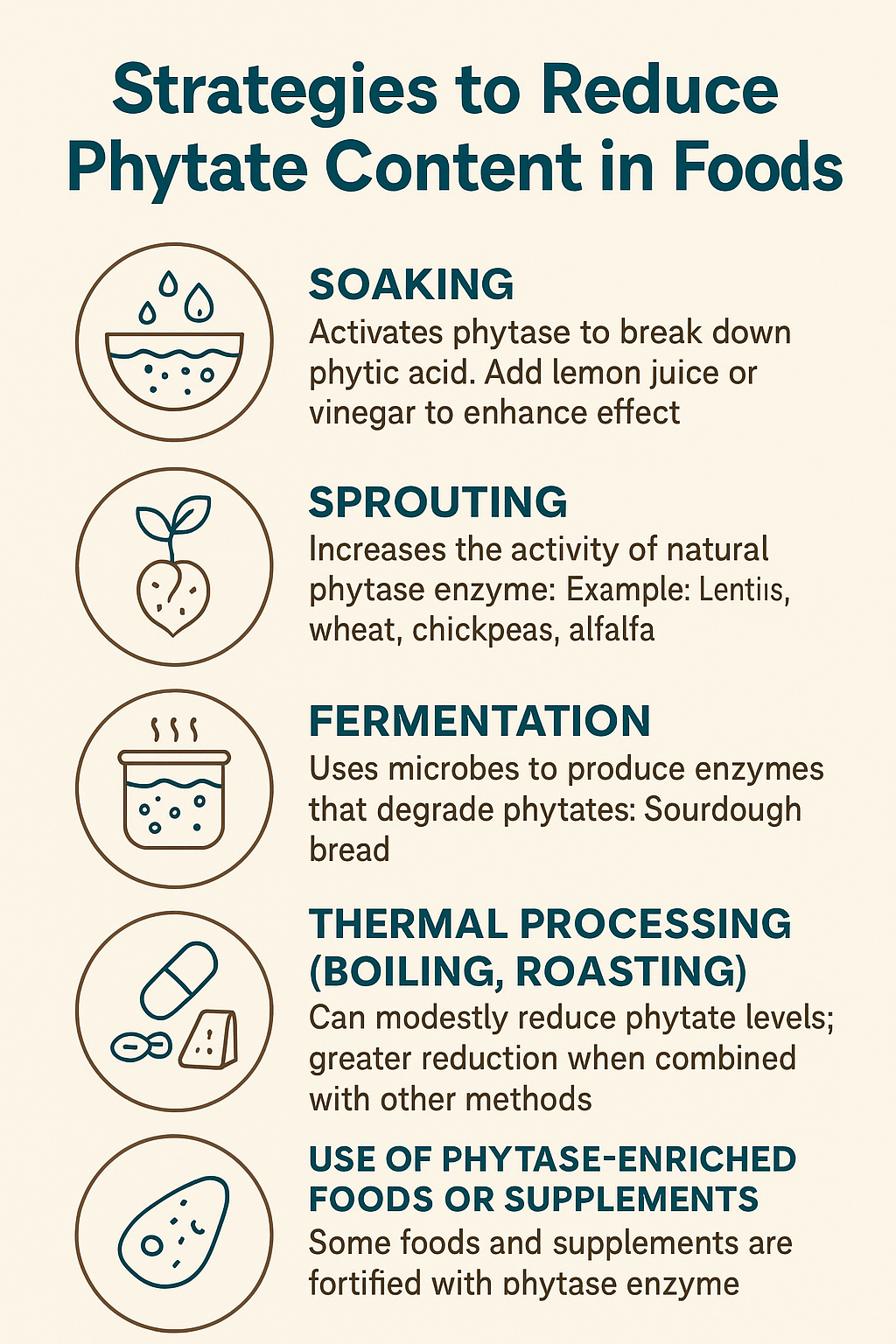The Ultimate Guide to Taking Zinc for Maximum Absorption
Zinc (Z) is an essential mineral vital for countless biological functions. It supports immune defense, promotes wound healing, and facilitates enzymatic reactions necessary for growth and development. Deficiency disrupts these processes, leading to impaired health.
Key insights for maximizing zinc intake:
- Taking on an empty stomach can enhance absorption but often causes gastrointestinal discomfort, including nausea and vomiting. This results from high zinc concentrations irritating the stomach lining.
- Individuals prone to nausea should take it with food to reduce side effects.
- When supplementing with meals, choose low-phytate foods such as eggs, dairy products (cheese, yogurt), and refined grains. Avoid high-phytate foods like whole grains, legumes, nuts, and seeds that inhibit zinc absorption.
- Zinc bisglycinate (zinc glycinate) is the preferred supplement form due to superior bioavailability and gentler effects on the stomach compared to zinc sulfate or oxide.
For those considering a new zinc regimen tailored to specific health needs, it’s advisable to consult a healthcare professional.
Understanding Zinc and Its Role in the Body
Zinc is one of the most important essential minerals our bodies need to stay healthy. It has many crucial functions that can be grouped into three main roles:
- Catalytic: It helps over 300 enzymes do their jobs, making important chemical reactions happen in our bodies.
- Structural: It keeps proteins and cell membranes stable and strong.
- Regulatory: It controls how genes are expressed and how cells communicate with each other.
These roles lead to significant health benefits:
- Supports immune system function by enhancing white blood cell activity and fighting off infections.
- Promotes wound healing through collagen synthesis and tissue repair.
- Maintains normal growth and development during childhood, adolescence, and pregnancy.
Consequences of Zinc Deficiency
When our bodies don’t get enough of it, these processes can be disrupted, resulting in serious health issues such as:
- Impaired growth and delayed sexual development in children.
- Increased vulnerability to infections.
- Slow wound healing and skin problems.
Deficiency can also cause symptoms like nausea and vomiting, often due to improper supplementation practices. High levels of Z can irritate the stomach lining, highlighting the need for proper intake methods.
The Impact of Zinc Form on Absorption
The type we consume can affect how well our bodies absorb it and how tolerant we are to it. For instance, zinc bisglycinate is better absorbed and causes fewer digestive side effects compared to other forms like zinc sulfate or oxide.
Dietary Factors Affecting Zinc Absorption
Understanding how it works in our bodies helps us find ways to make sure we absorb it properly. This includes being aware of dietary factors that can interfere with absorption, such as phytates found in foods like whole grains (barley, brown rice), legumes (lentils, chickpeas), nuts, and certain seeds when we’re taking supplements.
Factors Influencing Zinc Absorption
Zinc bioavailability determines how much from food or supplements is effectively absorbed and utilized by the body. Several dietary components influence this process, either enhancing or inhibiting absorption.
Dietary Inhibitors: Phytates
Phytates (phytic acid) are the primary inhibitors of zinc absorption. These compounds are abundant in:
- Legumes: Black beans, soybeans
- Nuts and seeds: Almonds, walnuts, flaxseeds, sunflower seeds
- Certain vegetables: Particularly those with seeds or bran-like coatings
Phytates bind Z ions in the gastrointestinal tract, forming insoluble complexes that the body cannot absorb. This interaction significantly lowers zinc bioavailability. Populations relying heavily on cereal-based or vegetarian diets face increased risk of Z deficiency due to high phytate intake.
Phytates form insoluble complexes with zinc in the gastrointestinal tract, inhibiting its absorption. This is particularly significant in populations that rely heavily on cereal-based or vegetarian diets, where zinc deficiency risks are higher.
Enhancers of Zinc Absorption
Certain dietary factors improve uptake:
- Proteins from animal sources increase zinc solubility and absorption.
- Organic acids like citric acid (found in citrus fruits) form soluble zinc complexes that enhance bioavailability.
Scientific Evidence
A clinical review by Lowe et al. (2021) highlights the importance of phytate: zinc molar ratios as critical indicators of absorption efficiency. When this ratio exceeds 15:1, zinc bioavailability drops sharply. For more detailed insights into these interactions, including how they affect food choices and supplementation strategies, you can refer to the study published in this article.
Understanding these interactions can guide food choices and supplementation strategies to optimize zinc status effectively.
The Impact of Phytates on Zinc Absorption Inhibition
Phytates Definition
Phytates are naturally occurring compounds found in plant seeds that act as “anti-nutrients” by chelating essential minerals like zinc, reducing their bioavailability during digestion.
How Phytates Inhibit Zinc Absorption
Phytates bind to minerals like zinc in the gastrointestinal tract, forming insoluble complexes that hinder absorption efficiency.
Common High-Phytate Foods
- Whole grains: Wheat bran, oats, barley
- Legumes: Lentils, chickpeas, black beans, soybeans
- Nuts and seeds: Almonds, walnuts, flaxseeds, sunflower seeds
To optimize zinc absorption, choose low-phytate foods when supplementing. Suitable options include eggs, dairy products like cheese and yogurt, and refined grains. Avoid high-phytate foods such as whole grains, legumes, nuts, and seeds during zinc supplementation.
Zinc Bisglycinate for Better Tolerance
Zinc bisglycinate (zinc glycinate) is a preferred form of supplement due to its higher bioavailability and reduced likelihood of causing gastrointestinal side effects compared to other forms like zinc sulfate, gluconate or oxide.
Summary:
- Empty Stomach: Enhances absorption but may cause nausea; not recommended for those sensitive to gastrointestinal upset.
- With Food: Reduces nausea risk; choose low-phytate foods to maintain absorption efficiency.
- Zinc Form: Zinc bisglycinate is preferable for better absorption and reduced stomach irritation.
Always consult with a healthcare professional before starting any new supplement regimen to ensure it’s suitable for individual health needs.
Strategies for Optimizing Zinc Supplementation
Here are some effective strategies to optimize your zinc supplementation:
- Empty Stomach: Enhances absorption but may cause nausea; not recommended for those sensitive to gastrointestinal upset.
- With Food: Reduces nausea risk; choose low-phytate foods to maintain absorption efficiency.
- Zinc Form: Zinc bisglycinate is preferable for better absorption and reduced stomach irritation.
Recommendations for Taking Zinc Supplements
When it comes to taking Z supplements, individual tolerance plays a significant role. Here are some recommendations based on different scenarios:
- Empty Stomach: If you can tolerate it, taking Z on an empty stomach may enhance absorption. However, be cautious if you are prone to nausea or gastrointestinal upset.
- With Food: If you experience nausea when taking zinc on an empty stomach, it’s best to take it with food. Just make sure to choose low-phytate meals, as phytates can inhibit zinc absorption.
Preferred Supplement Forms for Sensitive Individuals
For individuals with sensitive stomachs or those who have experienced gastrointestinal side effects from other forms of Z, zinc bisglycinate (also known as zinc glycinate) is generally a better option. This form of zinc is typically gentler on the stomach compared to forms like zinc sulfate or zinc oxide.
Benefits of Zinc Bisglycinate
- Higher bioavailability: Studies have shown that zinc bisglycinate has better absorption compared to other forms of zinc.
- Reduced gastrointestinal side effects: Zinc bisglycinate is less likely to cause stomach irritation or discomfort.
Always consult with a healthcare professional before starting any new supplement regimen, especially if you are already on multiple medications. It’s crucial to ensure that the new supplement is appropriate for your individual health needs and does not lead to overmedication.
Practical Tips to Enhance Zinc Absorption from Food Sources and Supplements
Best practices taking zinc supplements focus on maximizing absorption while minimizing discomfort. Taking it on an empty stomach can enhance its absorption due to reduced competition from other dietary components. However, gastrointestinal discomfort such as nausea is common, especially with forms like zinc sulfate or oxide.
Timing and dosage considerations:
- Taking Z supplements 30 minutes before or 2 hours after meals can improve absorption.
- Avoid high doses in a single intake; split dosages if daily needs exceed 40 mg to prevent saturation.
- A lower phytate-to-zinc molar ratio (<5:1) allows more efficient absorption (PMID: 33654260).
Dietary strategies to support effective supplementation:
- Include vitamin C-rich foods (e.g., citrus fruits, bell peppers) alongside zinc to enhance absorption by reducing inhibitors.
- Choose low-phytate meals when supplementing with food; eggs, dairy, and refined grains are ideal companions.
- Use food preparation methods that reduce phytate content:
Soaking: Immersing grains or legumes in water activates phytase, breaking down phytic acid. Adding lemon juice or vinegar lowers pH, enhancing this effect. Soaking can reduce phytates by 20–50% depending on conditions (Lopez et al., 2001).
Sprouting (Germination): This process increases phytase activity naturally present in seeds, further degrading phytates. Effective for lentils, mung beans, wheat.
Fermentation: Microbial action during fermentation (e.g., sourdough bread) significantly reduces phytates.
- Consider zinc bisglycinate supplements, which are better absorbed and gentler on the stomach.
Applying these tips supports efficient zinc uptake from both supplements and dietary sources.

However, it’s important to note that while Z plays a crucial role in various bodily functions including immune response and wound healing, excessive intake can lead to adverse effects. This is particularly relevant given the recent rise in syphilis cases which may be linked to certain lifestyle factors including diet. For more information on this health concern, refer to this article about the syphilis making a comeback.
Safety Considerations and Consulting Healthcare Professionals Before Starting Any New Supplement Regimen
Supplement safety is paramount when incorporating Z into your routine. Taking zinc on an empty stomach enhances absorption but often leads to gastrointestinal discomfort, including nausea and vomiting. This occurs because high concentrations of zinc irritate the stomach lining. Individuals prone to nausea should take zinc with food to reduce these side effects, following some of the ultimate guide to beating heartburn naturally which suggests natural remedies and lifestyle changes that can help alleviate such discomfort.
When choosing meals for zinc supplementation, opt for foods low in phytates. Phytates inhibit zinc absorption by binding the mineral, reducing its bioavailability. Suitable options include:
- Eggs
- Dairy products such as cheese and yogurt
- Refined grains
Avoid high-phytate foods like whole grains, legumes, and certain seeds during supplementation.
The chemical form matters. Zinc bisglycinate (Z glycinate) is generally gentler on the stomach compared to forms like zinc sulfate or zinc oxide. Studies indicate it offers higher bioavailability and fewer gastrointestinal side effects.
Risks associated with improper supplementation or excessive intake include:
- Nausea and vomiting
- Copper deficiency due to competitive absorption
- Immune dysfunction from imbalance
Consulting a healthcare professional ensures personalized guidance tailored to individual health status, dietary patterns, and potential interactions with medications or other supplements. Professional oversight helps establish appropriate dosage, form selection, and timing strategies—crucial steps to maximize benefits while minimizing risks.
Conclusion
Optimizing intake summary:
- Taking zinc on an empty stomach can enhance its absorption but often leads to gastrointestinal discomfort, including nausea and vomiting. This occurs due to the high concentration of zinc irritating the stomach lining. Individuals prone to nausea should take zinc with food to reduce these side effects.
- When taking it with meals, choose foods low in phytates to maintain absorption efficiency. Suitable options include eggs, dairy products like cheese and yogurt, and refined grains. Avoid high-phytate foods such as whole grains, legumes, and certain seeds during supplementation.
- Zinc bisglycinate (also known as zinc glycinate) is generally gentler on the stomach and has higher bioavailability compared to forms like zinc sulfate or zinc oxide.
Key reminder: Tailor your zinc supplementation approach based on personal tolerance, dietary habits, and health needs. Consultation with a healthcare professional ensures safe and effective use aligned with individual requirements.
FAQs (Frequently Asked Questions)
Why should Z not be taken on an empty stomach?
Taking zinc on an empty stomach can enhance its absorption but often causes gastrointestinal discomfort such as nausea and vomiting due to irritation of the stomach lining by high zinc concentration. Therefore, it is not recommended for individuals sensitive to such side effects.
What types of foods are best to take with zinc supplements to improve absorption?
To mitigate nausea while maintaining zinc absorption, it’s advisable to take zinc with low-phytate foods such as eggs, dairy products like cheese and yogurt, and refined grains. High-phytate foods like whole grains, legumes, and certain seeds should be avoided during zinc supplementation because phytates inhibit zinc absorption.
How do phytates affect zinc absorption in the body?
Phytates, found in plant seeds like whole grains, legumes, nuts, and seeds, bind essential minerals including zinc, forming insoluble complexes that reduce their bioavailability during digestion. This significantly inhibits zinc absorption especially in diets high in phytate-rich foods.
Which form of zinc supplement is gentler on the stomach and has better bioavailability?
Zinc bisglycinate (also known as zinc glycinate) is generally gentler on the stomach compared to forms like zinc sulfate or zinc oxide. Studies indicate that it has higher bioavailability and fewer gastrointestinal side effects.
What are effective methods to reduce phytate content in foods to improve mineral absorption?
Evidence-based strategies include soaking grains and legumes (especially with added acid), sprouting/germination which activates natural phytase enzymes, fermentation (such as sourdough bread making), thermal processing like boiling or roasting combined with other methods, and using phytase-enriched foods or supplements. These methods can reduce phytate content by 20% up to 100%, enhancing Z bioavailability.
Why is it important to consult a healthcare professional before starting Z supplementation?
Consulting a healthcare professional ensures that zinc supplementation is appropriate for your individual health needs, helps determine the correct dosage and form of zinc, and prevents potential adverse effects or interactions with other medications or conditions.

